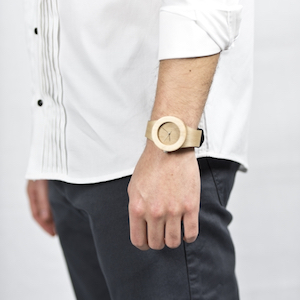
The oldest man I ever met was six years old.
He was the younger brother of my daughter’s best friend, and there was something inexplicably different, maybe even wise about him.
He came to all the school events and to my kids’ birthday parties, and I liked him. Then one day in my kitchen, as I was cleaning up the 15-some plates smeared with leftover cake and icing, he told me that he was “that boy.”
That boy?
“You know,” he said, “the one who was almost eaten by the dogs.”
Unbeknownst to me, years earlier a two-year-old boy had been mauled by dogs during a birthday party. It was in the news. The family Rottweiler had teamed up with two of the guest’s dogs and viewed the toddler as prey, and they had attacked. The adults finally beat the dogs off and took the child to the hospital for stitches, morphine, skin graphs and a very long recovery.
As he told me this—simply and innocently, like I was his new best friend and this was no big deal—I could see the scars. Scars on the face are subtle once healed, which I know from my own many skin cancer surgeries. Suddenly, it all made sense. He had the light and vulnerability of a boy, like the proverbial Peter Pan, and also the depth of an old soul having gone through something that no one should have to go through, especially not at two years old.
This boy had three of the underpinnings of what I now see as the vulnerability of men: early wounding, a naturally bright and connecting nature, and scars that you cannot see.
His wounding was physical, and obviously horrific, but for most men that wounding is actually emotional and psychological. My theory, as I come to understand the suffering of both men and women, is that male wounding is sometimes different from women’s. In short, we live in a culture that divides people from themselves through punishment, reward, control, expectations, shame, and sometimes abuse or neglect, but the impact on each gender is quite different.
A colleague of mine recently quoted a study that said that girls begin to detach from their sense of self at about age 11, whereas boys detach at about age two. If that is true, then the type of wounding that happens for boys is mostly pre-verbal and thus it shows up very differently than it would if they had been older or of the other gender. For men, their wounding is both more innocent and also more embedded, and—for the people in their lives—more confusing.
Why would a boy detach from his sense of self at such a young age? I suggest that it is cultural and oftentimes familial.
I had a friend who had two young sons while I had two young daughters at the same time. Honestly, I was stunned at what it was like for her. Her boys were wild even though she didn’t have especially unruly or special-needs sons. How did she manage to raise these boys in a world where order and control is often expected and a child’s behavior reflects upon the parent? How do you manage when you are the mother of a naturally wild, free and almost feral creature? I remember her saying that she had to learn the language of pure physicality and play—“everything for them is physical,” she said.
My friend was a pretty conscious and resourced mother who was willing to learn their language instead of forcing them to conform to hers, but of course it is often much worse. I also knew a boy at my children’s school who was just five years old at the time and had the heart of an angel. While his older sister was treated with kindness and care when she had emotions or got hurt, her little brother was told to “stop crying,” “be a man,” and “shake it off.” His father especially shamed and derided him if he skinned his knee or cried— although it was couched as being playful, and even as good parenting. I noticed that the boy’s sadness and tenderness were especially targeted. Emotions were regarded as weak, and weakness was regarded as unmanly.
This sweet boy liked to wear dresses when he played and also developed a crush on my younger daughter, even asking her to the pretend “prom.” He was soft, kind, and thoughtful. He was also being slowly groomed not to show any feelings except, perhaps, anger. Given the frustration of not having his emotional needs met, it would make sense that he would have quite a lot to be angry about.
Sadly, it gets worse. In my work in psychiatric services on the Emergency Team, I helped stabilize an affluent young man who was threatening to use a chain saw on his parents quite literally. Once the police intervened and I finally got to speak with him, he told me how his father would shame him, goad him, call him a “c*nt” and laugh at him. He was overcome with the feelings he had never been allowed to express, and it was coming out in the one emotion he was allowed: anger. He was 19 years old.
I believe that the first step in understanding the vulnerability of men is to deeply recognize how confusing and heartbreaking it is when you are cut off from virtually every softness, tenderness, sadness or comfort by perhaps the age of two.
Obviously not every family acts in this way, but the culture itself reinforces it—teachers, other children, strangers and of course the media. If girls are raised with a Cinderella complex—expecting to be saved miraculously if they are pretty, sweet and wonderful enough—boys are conversely raised to be part man and part machine. Just think of the “Transformers.”
When you are disconnected from yourself as a toddler or maybe even younger, two things are likely to happen. First, you become partially stuck at that time of life, which we all know to be largely charming, delightful, playful and innocent. Second, you also carry wounds from that very same time and the associated confusion, frustration, grief and then of course anger, even rage, deep inside. This rage is often directed at women for possessing the very softness of body and spirit that has been denied to them—something men often seek through relationships and sex, and yet also cannot stand to be around, like kryptonite. Why would they have this ambivalence? Coming into contact with this softness opens them to their own, discarded nature—essentially to what has been lost—and the pain of reconnecting with it opens a flood of feeling for them, which is the one thing they are not allowed.
Having that kind of intensity of feeling is hard for anyone, but for most men it can be almost intolerable.
When you are in a relationship with a man you may see both the charming, loving nature as well as the ambivalence—sometimes even manipulation or aggression—and then be profoundly confused by it. Many years ago my partner said, in a fit of understanding, how much he hates women, and loves them, and hates how he loves them.
At a deeper level, the needs of being vulnerable for a man is, I assume, the same as being vulnerable for a woman. It is being able to feel fully, to express honestly, and then to allow ourselves to be met and cared for. Again, however, for women, being vulnerable brings us back to about eleven years old. That is no easy task, yet we had some resources, some connections and language. For a man, being vulnerable may bring him back to being two where his very nature was considered “unruly,” as well as being shameful for having any emotion at all.
Of course we can’t have genuine relationship unless there is emotion, connection and vulnerability, but many men are deeply ambivalent about it. What naturally follows is often that men act tough, strong and less affected than they actually feel. They then distance and are confused about what they themselves even want. Meanwhile, in the face of this, men are supposed to “have it all together,” or at least act that way, because the shame of “not being a man” is ever looming.
My young friend—the one who was almost “eaten by the dogs”—embodied both the tragedy and the lightness of his childhood, and together they manifested as a strangely won wisdom. At the age of six he didn’t yet know how not to be authentic, innocent and genuine. I think that happens when we are met and cared for, as his parents did, and also when the scars are made from claws and teeth instead of from invisible expectations, dismissals and shame.
The strongest thing a man can do in this culture is to be soft, and yet that is also herculean. The thing they want the most—the softness of their own souls as well as to feel and touch that in another—is also the thing that defines their own inadequacy. All of that, when triggered, comes up pre-verbally because of the age of the wounding itself, so it can only be acted out instead of spoken about most of the time.
Here is an example of understanding the vulnerability of men, in this context:
My then partner and I had made a date for dinner at one of my favorite restaurants. When the time came he vacillated, saying maybe we should go somewhere else. That was fine with me, but as we talked I discovered that nothing was satisfying for him. He also seemed distraught. Finally he said maybe we should just go back to his house instead.
Once we got there, he was even more distant and distracted. He said he really just wanted to clean his apartment. What? This was my date with him? Did he not even care about our date, about me, or about the impact this had? I protested for a while and finally gave up.
“Fine,” I said. “I guess I’ll just head out then,” turning to the door. But no, he didn’t want me to leave either. I was getting furious now.
Then I got it, suddenly and all at once. The confused drama we were engaged in was itself the date. This was how he was showing me his vulnerability, his ambivalence—not about me, but about himself. He actually trusted me enough to let me see, in real time, what it is like inside him. It was all done pre-verbally, all acted out, so that I could be with him in it because he himself had no words for it. How could he?
If I guessed at his unspoken words that night, they might sound like this, “I love you. I hate you. I want you. I hate that I want you. You weren’t there when I needed you. I can’t stand the feelings that happen inside me when I want you so much. I have to go. I don’t want you to go. I don’t want to need you. Don’t leave me.”
It’s a stark answer, but it begins to make sense of the facts. If those words are right they are ones that almost certainly weren’t first directed at me, rather it has been a longstanding feature of his life, understandably. The most poignant part, though, is that being “almost eaten by the dogs” turns out to be less traumatizing than what our own culture does to children, and especially to boys.
Being eaten by dogs also becomes a very apt analogy. We love dogs, sometimes even dangerous ones, because we understand their inherent innocence. We want to help, to care for and love them, and sometimes that works. We love videos of the snapping, junkyard puppy being welcomed into a warm home and coming back into his full, sweet, playful and trusting nature.
We may even love him more because we recognize the wounding.
Understanding the vulnerability of men doesn’t automatically give us insight into how to work with it, but having this view may give us compassion, and that is an important first step. When I begin to see the early wounding of men and the particular nature of it, I stop seeing their behavior as confusing, crazy, or intentionally unkind—and that doesn’t mean that I engage with it when I am the one getting eaten by the dogs.
Relephant offering from our mindful, eco, ethical Elephant Market:
Eco Wood Watch by Analog Watch Co. $164

Relephant Read:
Why Men Withdraw Emotionally.
Author: Kristin Luce
Editor: Emily Bartran
Photo: Angel Monsanto III/Unsplash











Read 18 comments and reply